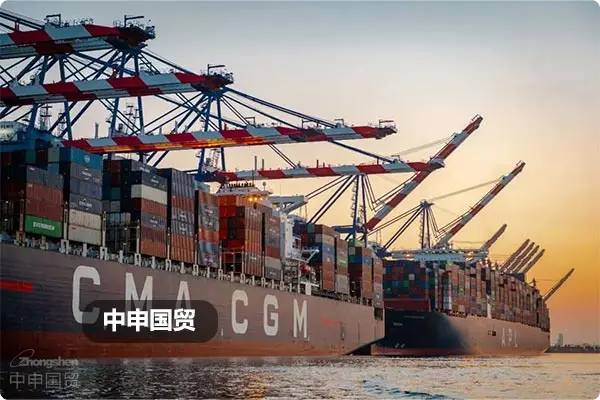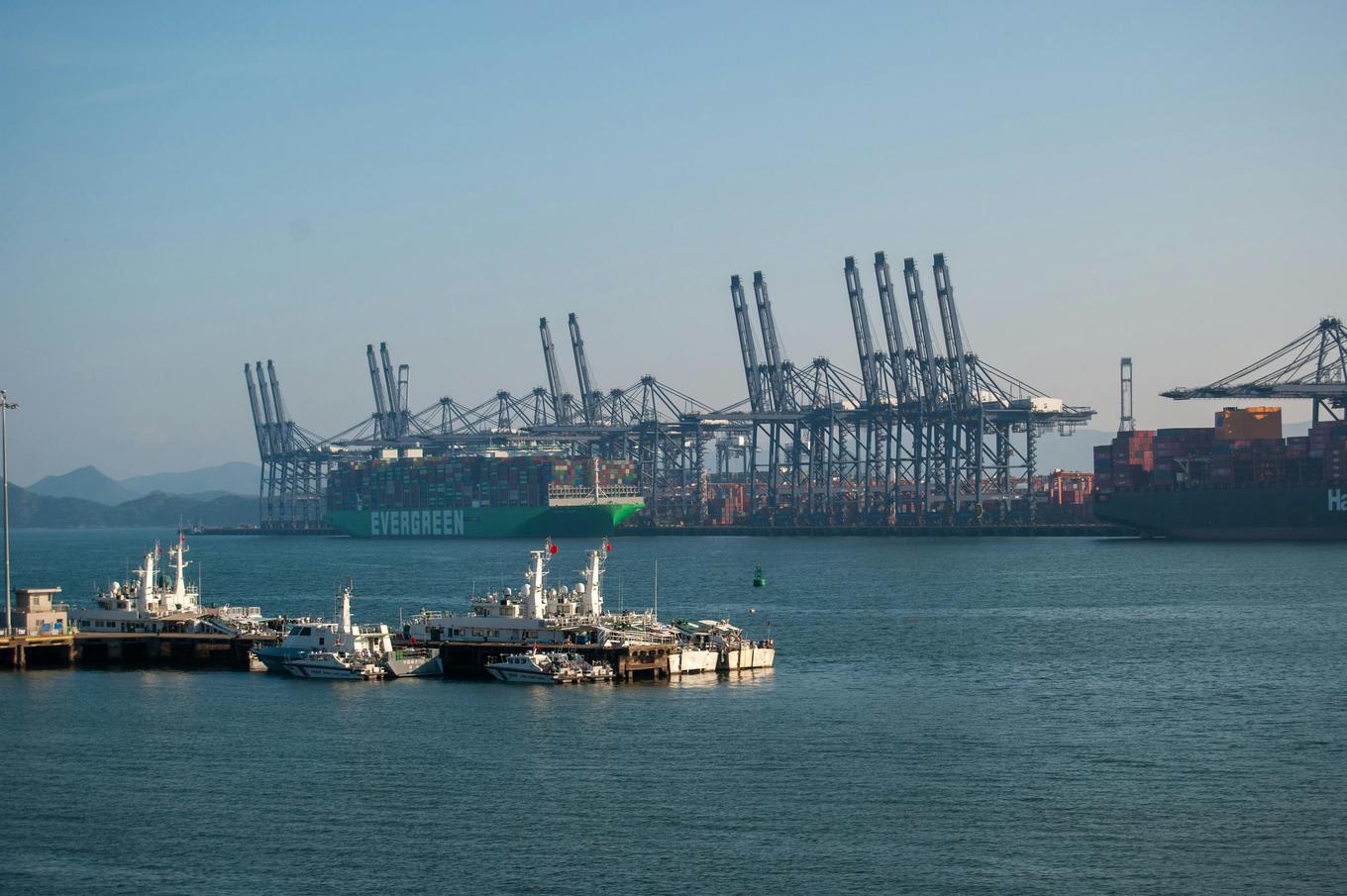- Shanghai Zhongshen International Trade Co., Ltd. - Two decades of trade agency expertise.
- Service Hotline: 139 1787 2118

Introduction
Amidst global trade development, importing Japanese pneumatic components has become a key strategy for businesses to expand operations and enhance product competitiveness. However, the complexity and volatility of international trade involve multiple import process stages. Efficiently completing imports of Japanese pneumatic components is a critical focus for enterprises. This article details relevantimport and exportprocesses, strategies for navigating international trade dynamics, and professional support services.
Challenges and Opportunities for Japanese Imported Pneumatic Components in the Current International Trade Landscape
The current international trade landscape is unpredictable. Rising trade protectionism has led countries to implement various restrictive measures, with evolving tariff and non-tariff barriers. For example, some nations may increase tariff rates on pneumatic components, raising import costs, or impose stringent technical standards and certification requirements as non-tariff barriers hindering smooth imports.
Simultaneously, opportunities abound. With global economic recovery, manufacturing demand for pneumatic components continues to grow. Japan, a powerhouse in pneumatic component production, offers high-precision, high-performance products with strong global competitiveness. Moreover, regional trade agreements provide favorable conditions for importing Japanese pneumatic components—e.g., free trade agreements reducing tariffs and simplifying clearance procedures to lower costs and improve efficiency.
ZhongShen International TradeProfessional capability in document processing
Document processing is a critical aspect of import procedures. ZhongShen International Trade boasts extensive experience and a professional team in this area. For importing Japanese pneumatic components, essential documents include the Commercial Invoice, detailing cargo descriptions, quantities, and values for customs valuation, and the Packing List, specifying package contents for customs inspection.
ForImport Customs Declaration(Import Declaration Form), our team accurately completes all fields, including HS Codes. Correct HS Code classification is vital for determining tariff rates and regulatory conditions. We apply relevant classification rules to precisely identify codes based on pneumatic component specifications.
During document review, we meticulously verify consistency across invoices, packing lists, and Bills of Lading to prevent clearance delays from discrepancies. We also monitor evolving document requirements, such as specific environmental declarations mandated by certain countries, to ensure seamless import processes.
Professional Logistics Arrangement Support
Logistics arrangements directly affect whether goods can arrive at their destination on time and safely. Chinasun International Trade has established long-term cooperative relationships with multiple well-knownInternational Logisticscompanies in logistics. When importing pneumatic components from Japan, we can select the appropriate transportation method based on factors such as the urgency, weight, and volume of the goods.
If the goods are relatively urgent and lightweight,Air Transportation(Air Freight) is a good option. We will assist customers in booking suitable flights and handling relevant air freight procedures to ensure the goods can take off quickly and clear customs smoothly. During air transport, attention must be paid to the packaging of the goods to ensure they can withstand the turbulence of air transportation.
If the volume of goods is large and the time requirement is not particularly urgent,Maritime Transportation(Ocean Freight) is more cost-effective. We will select suitable shipping routes and schedules based on the origin and destination ports of the goods. During ocean transport, attention must be paid to the stowage and lashing of the goods to prevent damage during transit. At the same time, we will track the transportation status of the goods in real time. Through the logistics information system, customers can monitor the location and estimated arrival time of the goods.
For customs clearance and delivery after the goods arrive at the destination port, we also have a professional team responsible. We will prepare the necessary customs clearance documents in advance and work closely with local customs brokers to complete clearance procedures quickly. Then, according to customer requirements, we will arrange for the goods to be delivered to the specified location, whether it is a warehouse or production workshop, ensuring timely and accurate delivery.
VTB for the Russian MarketFX Settlement AgencyAdvantages
When importing Japanese pneumatic components for the Russian market, Chinasun International Trade has unique VTB foreign exchange settlement advantages. Foreign exchange settlement is an important part of fund recovery in international trade. Generally, the settlement process involves the exporter submitting relevant documents to the bank after shipment, and the bank, after verification, converts the foreign currency into local currency at the agreed exchange rate and pays the exporter.
In business with Russia, settling through VTB Bank offers many advantages. VTB Bank holds an important position in the Russian financial market, with an efficient and stable settlement system. Compared to other banks, VTB Bank has extensive experience in handling trade settlements and is familiar with Russian trade regulations and financial policies. This means that during the settlement process, transactions can be processed more quickly, reducing the time funds are in transit. Moreover, VTB Bank is relatively flexible in reviewing trade backgrounds. As long as the documents are complete and the trade is genuine, settlement operations can be completed more smoothly, reducing financial risks for enterprises.
Import and Export Processes and Solutions for the Southeast Asian Market
Import Process
When importing Japanese pneumatic components to the Southeast Asian market, the first step is to conduct market research to understand local demand for pneumatic components, competition, and relevant trade regulations. Different countries may have different import policies. For example, some countries may impose import quotas on specific types of pneumatic components, while others may have strict requirements on product quality standards.
After confirming the intention to import, a trade contract (Contract of Sale) is signed. The contract must clearly specify important terms such as product specifications, quantity, price, delivery period, and payment method. For example, the payment method can be chosen asL/C(Letter of Credit, LC), which is backed by bank credit, reducing risks for both buyers and sellers.
The next step is to arrange transportation and customs clearance. As mentioned earlier, the appropriate transportation method is selected based on the goods. During customs clearance, basic documents such as commercial invoices, packing lists, and bills of lading must be prepared. Depending on local customs requirements, additional documents such asIt is recommended to verify through the following methods:(Certificate of Origin) and quality inspection certificates may be required. For example, some Southeast Asian countries have strict rules on the origin of imported products to protect local industries, and only products that meet specific origin rules can enjoy preferential tariff treatment.
Solutions
To address the complex import policies in the Southeast Asian market, Chinasun International Trade provides professional solutions. We closely monitor policy changes in various countries and promptly offer policy interpretations and advice to customers. For import quota issues, we can assist customers in applying for quotas or avoid quota restrictions through reasonable product classification.
Regarding quality standards, we will understand local requirements in advance and assist customers in communicating with Japanese suppliers to ensure products meet the standards. If product inspection is required, we can recommend professional inspection agencies and assist customers in arranging inspections.
Product certification services
During the import of Japanese pneumatic components, product certification is an indispensable step. Different markets have varying certification requirements for pneumatic components. For example, the EU market may require CE certification, while the US market may need UL certification. Although Chinasun International Trade does not directly provide certification services, we will inform customers of the required certification types and assist them in the process.
We will help customers navigate the certification process, provide information on relevant certification agencies, and guide them in preparing the necessary documents. For example, when preparing CE certification documents, technical files and test reports of the products must be provided. At the same time, we will assist customers in communicating with certification agencies and track the progress to ensure timely certification and smooth entry into the target market.
Conclusion
Although importing Japanese pneumatic components faces complex international trade conditions, enterprises can achieve efficient import and export through professional document handling, reasonable logistics arrangements, leveraging specific market advantages, and correctly addressing product certification. With its professional capabilities in document processing and logistics services, Chinasun International Trade provides comprehensive support to enterprises, helping them succeed in importing Japanese pneumatic components. Whether it is the VTB foreign exchange settlement advantage in the Russian market or the complex import-export procedures in the Southeast Asian market, we can provide effective solutions for customers, enabling them to move steadily forward in the waves of international trade.
Related Recommendations
? 2025. All Rights Reserved. Shanghai ICP No. 2023007705-2  PSB Record: Shanghai No.31011502009912
PSB Record: Shanghai No.31011502009912










